Humans
Sign up for our newsletter
We summarize the week's scientific breakthroughs every Thursday.
-
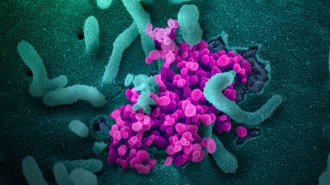 Health & Medicine
Health & MedicineLoss of smell and taste may actually be one of the clearest signs of COVID-19
Data from a symptom tracker smartphone app used by millions of people shows two-thirds of positive patients reported losing these senses.
-
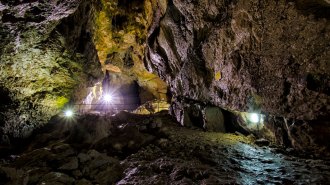 Anthropology
AnthropologyThe earliest known humans in Europe may have been found in a Bulgarian cave
New finds from Bulgaria point to a relatively rapid expansion of Homo sapiens into Eurasia starting as early as 46,000 years ago, two studies suggest.
By Bruce Bower -
 Health & Medicine
Health & MedicineFlorence Nightingale understood the power of visualizing science
Florence Nightingale showed simple sanitation measures could stop infectious diseases’ spread, a timely message given the ongoing coronavirus pandemic.
By Sujata Gupta -
 Health & Medicine
Health & MedicineA multiple sclerosis drug may speed COVID-19 recovery
One form of interferon may boost the immune system’s ability to fight the coronavirus early in infections, a small study suggests.
-
 Health & Medicine
Health & MedicineDoor-to-door tests help track COVID-19’s spread in one Oregon town
Surveying neighborhoods directly may give a more accurate view than mail-in tests and other methods, researchers say.
-
 Archaeology
ArchaeologyBrewing beer may be an older craft than we realized in some places
Newly discovered microscopic signatures of malting could help archaeologists detect traces of ancient beer.
-
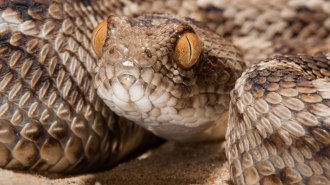 Health & Medicine
Health & MedicineA pill for heavy metal poisoning may also save snakebite victims
In mice, an oral medication delayed or even prevented death after a lethal dose of viper venom, a new study finds.
-
 Psychology
PsychologyA simple exercise on belonging helps black college students years later
Black college freshmen who did a one-hour training on belonging reported higher professional and personal satisfaction years later.
By Sujata Gupta -
 Health & Medicine
Health & MedicineSome existing drugs might fight COVID-19. One may make it worse
Maps of interactions between coronavirus proteins and host proteins point to drugs that may slow viral growth, but cough medicine may stimulate growth.
-
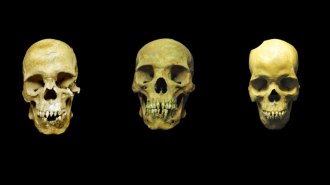 Anthropology
Anthropology16th century skeletons suggest the slave trade brought some diseases to Mexico
Slaves buried in a 16th century grave in Mexico had hepatitis B and yaws, suggesting the slave trade helped spread some versions of those diseases.
By Bruce Bower -
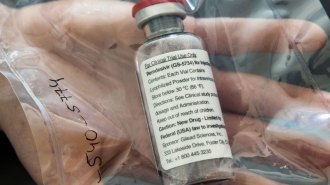 Health & Medicine
Health & MedicineRemdesivir is the first drug found to block the coronavirus
Preliminary results suggest that an antiviral treatment speeds recovery from COVID-19.
-
 Health & Medicine
Health & MedicineTo end social distancing, the U.S. must dramatically ramp up contact tracing
Life after social distancing may involve apps that ask you to self-isolate after you’ve been near someone who tests positive for COVID-19.